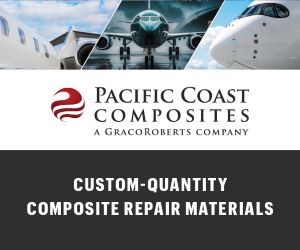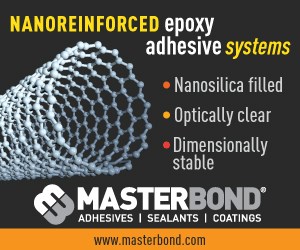Parkway Products opens new facility in Mexico
Aerospace parts molder Parkway Products has formed a molding campus in Saltillo, Mexico, with the addition of a second manufacturing facility.
Parkway Products (Florence, Ky.), a molder of high-performance polymers, announced on March 24 the formation of a comprehensive aerospace molding campus in Mexico. The campus will support the growing demand for aerospace composite structures and assemblies, as well as molded aircraft engine components.
Parkway has been active in the aerospace industry since the 1950s, producing various civil and military aircraft components. Parkway expanded its operations internationally by establishing a molding and assembly facility in Saltillo, Mexico, in 2001. This facility will continue in operation, focusing exclusively on the production of aircraft engine components and assemblies. A second facility, located adjacent to Parkway's existing location, has been acquired for the purpose of molding composite airframe components. Polymer-based composites are expected to capture a major presence in aerostructures, with composites taking the place of traditionally metal based materials.
"The expansion of our world-class Saltillo operation builds on the success of our Erlanger, Kentucky engineering and manufacturing center, as well as our existing Saltillo engine & assembly operation. This expansion enhances Parkway's ability to support growing customer demand in the composite aerostructures segment"says Nick Bitter, vice president of aerospace, defense & specialty products for Parkway. "It also demonstrates our dedication to the production of aerospace components in the Saltillo, Coahuila, Mexico region, while maintaining the highest levels of quality and security for our OEM customers.â€
The expanded Saltillo campus will maintain Parkway's current clean room assembly and injection, compression and resin transfer molding operations, while adding multiple autoclaves, additional clean rooms and specialized material storage units, with production scheduled to begin in June 2008. Both the Erlanger and Saltillo engine facilities carry ISO 9001, AS 9100 and NADCAP 7118 certifications, with current practices also migrating to the Saltillo aerostructures facility.
Related Content
-
Materials & Processes: Composites fibers and resins
Compared to legacy materials like steel, aluminum, iron and titanium, composites are still coming of age, and only just now are being better understood by design and manufacturing engineers. However, composites’ physical properties — combined with unbeatable light weight — make them undeniably attractive.
-
Materials & Processes: Fibers for composites
The structural properties of composite materials are derived primarily from the fiber reinforcement. Fiber types, their manufacture, their uses and the end-market applications in which they find most use are described.
-
Materials & Processes: Resin matrices for composites
The matrix binds the fiber reinforcement, gives the composite component its shape and determines its surface quality. A composite matrix may be a polymer, ceramic, metal or carbon. Here’s a guide to selection.












